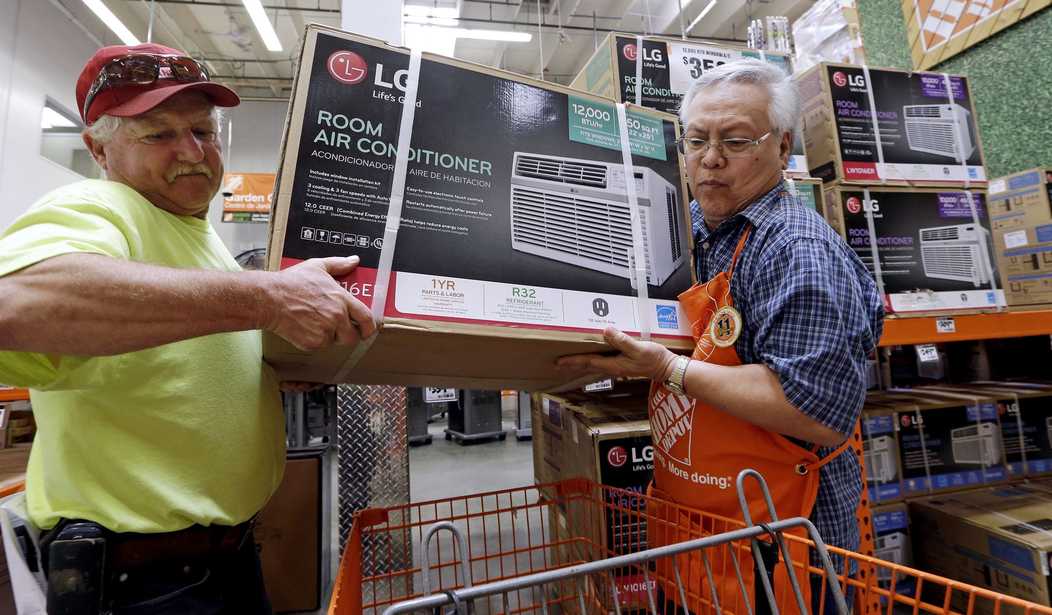What do air conditioners, mini fridges, and air purifiers have in common? According to Medicaid authorities in Oregon, they're all forms of health care.
Across the country, state Medicaid programs are suffering from a serious case of mission creep. Officials are trying to use Medicaid dollars to pay for everything from housing to food to home appliances.
Not only is this an abuse of Medicaid's purpose -- to provide health coverage to low-income Americans. It's an abuse of tax dollars. Spending on the program is spiraling; it's projected to exceed $1 trillion by 2028. Spending Medicaid
The problem stems in part from how Medicaid is structured. It's funded jointly by the federal government and the states, with the former paying the
As a result, the federal government is the source for
Each state administers its own Medicaid program. The
Today, they're testing just how far they can push the boundaries of Medicaid's scope.
Oregon is a case in point. In March, it began shipping those air conditioners, air purifiers, and mini fridges to Medicaid
Recommended
Other states are similarly straying from Medicaid's core mission. As of this February, at least 19 were using the funds to house homeless people or those at risk of eviction. Massachusetts has used Medicaid dollars to shelter migrants. Illinois has paid for efforts to curb gun violence. Several have used the money to provide food assistance.
California Governor Gavin Newsom would like to team up with hospitals to coax additional funds from the federal government for Medi-Cal, the
Many of the states' non-healthcare uses for Medicaid dollars are aimed at addressing real problems. But by trying to code ever-more spending as "Medicaid" spending in order to attract matching federal funds, the states are perverting the intent of the program -- and depriving its legacy population of resources they could really use.
Between 600,000 and 700,000 intellectually disabled people are currently waiting for Medicaid services, according to Gary Alexander, director of the Medicaid and Health Safety Net Reform Initiative at the Paragon Health Institute. As he recently told CBS News, "Medicaid has money for housing and food and air conditioners for recipients. Seems to me that we should serve the intellectually disabled first before we get into all of these new areas."
Medicaid wasn't designed to be a slush fund for addressing every social ill. Legislators need to return the program to its true and important purpose -- providing health care for those in need.
Sally C. Pipes is President, CEO, and Thomas W. Smith Fellow in Health Care Policy at the Pacific Research Institute. Her latest book is False Premise, False Promise: The Disastrous Reality of Medicare for All (Encounter 2020). Follow her on X, formerly Twitter, @sallypipes.

























Join the conversation as a VIP Member